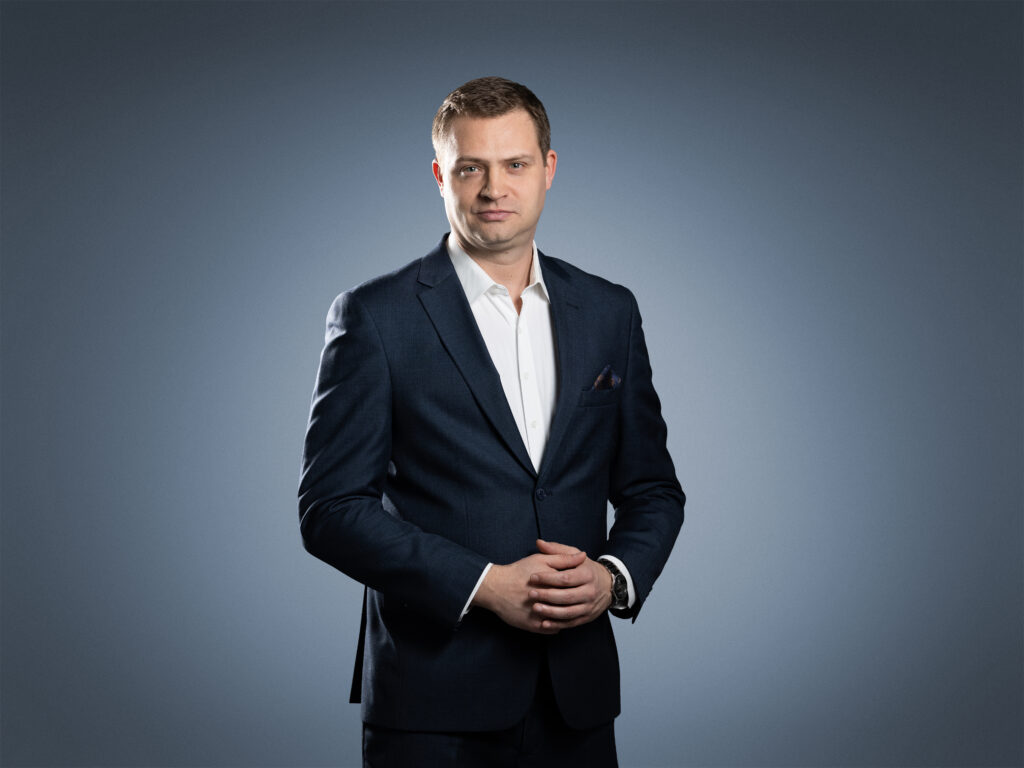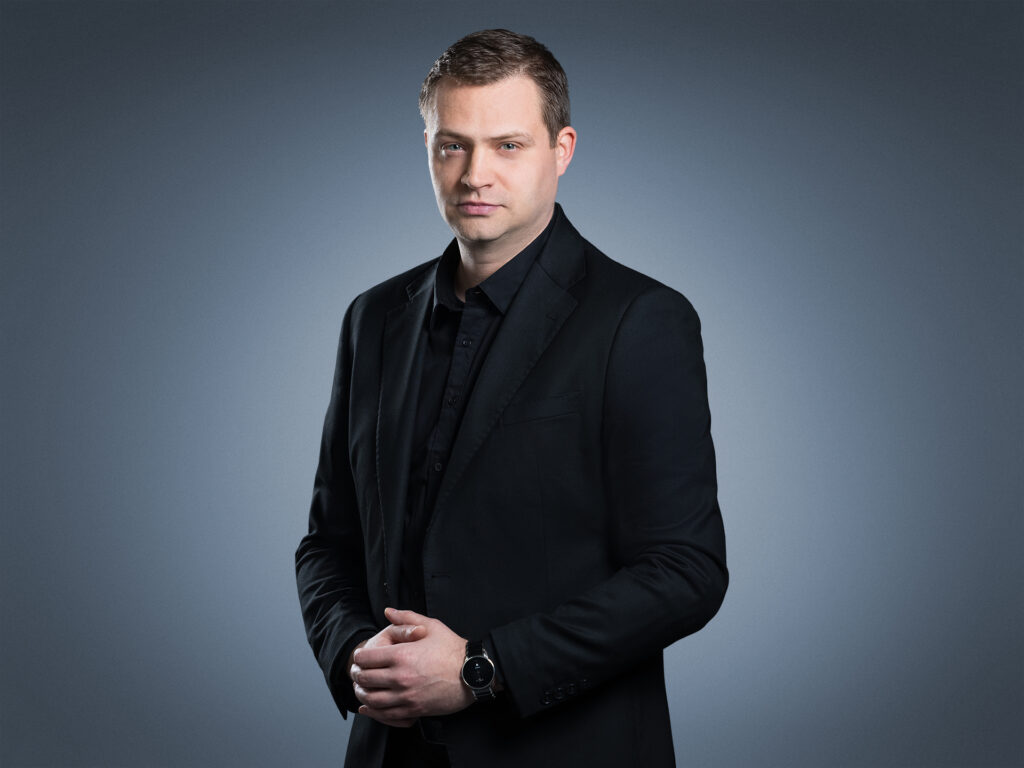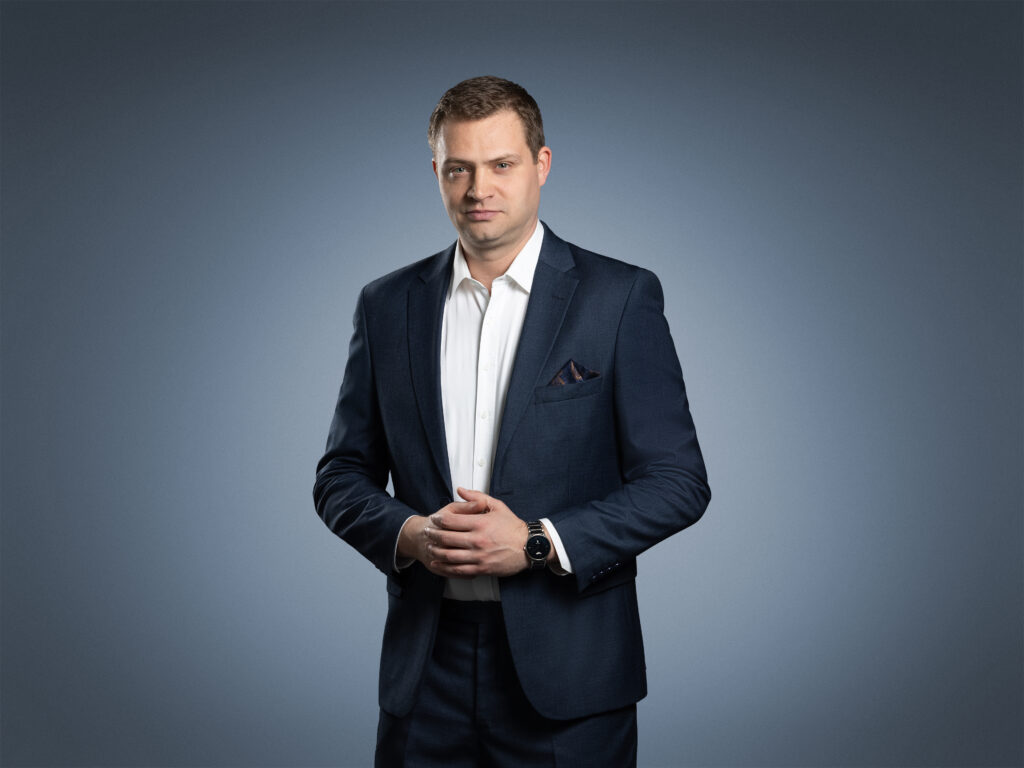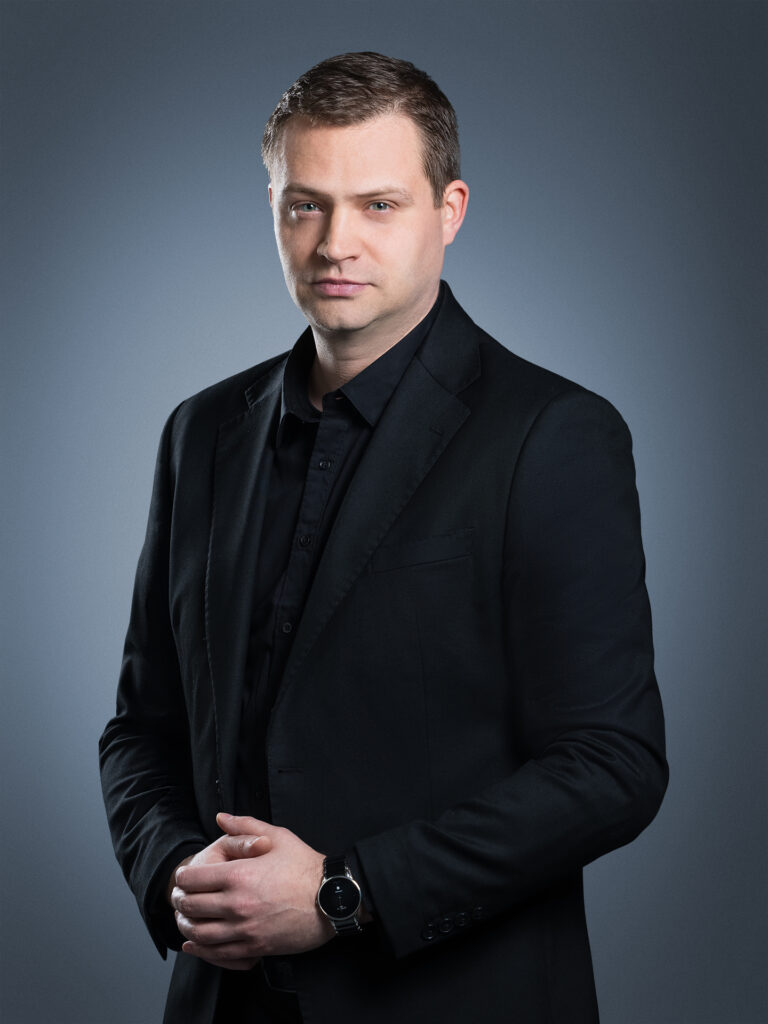The Role of Independent Media, Public Responsibility, and the Future of Journalism in Serbia
 Interview by: Dragan Nikolić
Interview by: Dragan Nikolić
In an era where the boundaries between journalism, propaganda, and political influence are increasingly blurred, the role of independent media has never been more crucial. Yet, in Serbia, the very notion of independent journalism is often questioned as pressures on the media landscape continue to mount. How can journalists maintain professionalism and integrity in an environment where political influence, censorship, and disinformation shape public discourse?
Branislav Šovljanski, journalist, producer at N1, and author of 360 Degrees, shares his perspective on the state of Serbian media, the erosion of journalistic standards, and the urgent need for reform. In this interview, he discusses the challenges of conducting meaningful dialogue, the importance of media independence, and the responsibility of journalists to uphold truth in a time of manipulation.
For a Culture of Dialogue, Its Participants Must Also Be “Cultured.”
How do you manage to maintain a measured and respectful approach in your work amid the media landscape’s “law of the jungle” while still achieving the desired impact and influence on public opinion?
For five years, I hosted 360 Degrees on N1, initially conceived as a debate show where differing views on key public interest topics in our society could be exchanged. In the first few years, this worked well, though it was never easy to always receive “cultured and measured” responses from guests. Different temperaments, political topics, and opposing opinions all played a role.
However, this format functioned only until the ruling parties decided to stop sending their politicians, officials, and public office holders to N1—even when they were expected to answer questions relevant to all Serbian citizens. I soon realised that such a concept no longer made sense if we only heard from like-minded individuals or multiple guests with the same views.
Since last year, the format of 360 Degrees has changed. I now conduct one-on-one interviews with individuals who are the best in their respective fields—people who have achieved success both professionally and personally and from whom we can all learn a great deal. And I must say, this change has been a refreshing one.
 In Serbia, the Term “Independent Journalists” Is Often Used Today, but Isn’t It Redundant?
In Serbia, the Term “Independent Journalists” Is Often Used Today, but Isn’t It Redundant?
After all, independence is a fundamental principle of journalism. Why is it necessary to emphasise that a journalist is independent?
It is necessary because, as you pointed out, the core principle of the profession has been forgotten in this country. At press conferences held by public officials, politicians, and those who run the country, questions are prearranged, and it is decided in advance which newsroom will ask first and which will follow. Journalists who ask meaningful questions—those who demand answers that are not given—are silenced, their microphones taken away, and they are not allowed to ask follow-ups.
The way those in power treat journalists, as well as the level of humiliation and arrogance they display, is perhaps unprecedented. That is precisely why it is crucial that independent journalists still exist—those who do their job honourably and responsibly.
If journalists themselves are not willing to set red lines and defend the dignity of their profession—if they allow themselves to be humiliated and take orders—then journalism ceases to be journalism. It becomes propaganda
Media Bias Exists Everywhere, but Civilised Societies Have Red Lines. Why Don’t We Have Them Here?
Because journalism, like the entire value system, has been degraded. Education has been pushed aside; we live in an era of fake diplomas, and the flood of fake news has come. Today, it is increasingly difficult to distinguish truth from lies and to tell whether a video or photo is real or generated by artificial intelligence.
Journalists here lack solidarity, though there have been some encouraging examples recently. But if journalists themselves are not willing to set red lines and defend the dignity of their profession—if they allow themselves to be humiliated and take orders—then journalism ceases to be journalism. It becomes propaganda, and there is far too much of that in our society.
How Can Serbia’s Media Landscape Be Changed? Is Lustration and a Purge Needed in Journalism?
It needs to be changed from the ground up. First and foremost, public broadcasters must truly become what their name suggests—serving the public interest, working for all citizens who fund them and paying their salaries. That’s where we should start.
Private media are a different matter—owners will always impose their own editorial policies. However, these media should be regulated by the market. Their survival should depend on viewership and advertising revenue.
There are certainly many candidates in this country for lustration in journalism, especially for such a small nation. We must not forget what has been done so far and how individuals have acted under their own moral responsibility.
 How Can This Be Achieved, and What Would Be the Preconditions for Change?
How Can This Be Achieved, and What Would Be the Preconditions for Change?
We need an orderly system, institutions that function and do their jobs properly. First and foremost, the judiciary must be independent but also transparent to citizens—everything it currently is not. Trust in these institutions must be restored.
Next, we need dialogue in society and a consensus on this country’s direction. Right now, I don’t think that’s clear to most people. Once that is established, the media landscape will also have to change.
Public broadcasters must truly become what their name suggests—serving the public interest, working for all citizens who fund them and pay their salaries. That’s where we should start
Your Shows Are a Model of Professionalism. How Difficult Is It to Maintain Such High Standards in Your Work?
I wouldn’t know how to do it any other way. My father taught me that a clear conscience is the softest pillow, and I try to live and work by it.
Do You Believe This Society Can Transform and Change for the Better? Do You Feel Your Work Can Contribute to That?
Every instance where we, as journalists, have helped someone—whether an individual or a group—proves the impact the media can have. Whether it’s cold radiators in homes, unpatched potholes on the street where people live, or raising donations for medical treatment, all these are examples of how journalism can make a difference.
Of course, the media should also influence broader social change rather than being misused for personal gain or self-promotion. I believe this society can and must change for the better—we all deserve it.
A perfect example is the young people—students and high schoolers—who have been demanding this for months: an organised system that would then lead to a healthier society. I truly believe it is possible.
